“Unlock the Secret Benefits of Comfrey”
Are you looking for a plant that can boost nutrients, improve soil structure and provide you with an endless source of organic plant feed to use on your own homegrown fruit and veggies? Look no further than comfrey! In this article, we will explore some of the secret benefits of comfrey. Learn how comfrey can improve soil health, and retain soil moisture, and why Bocking 14 comfrey might just be the best choice for your garden.
Comfrey, also known as knitbone, is a perennial herb that has been used for centuries in herbal medicine for its healing properties. But did you know that it can also be a valuable addition to your garden?
A must-have garden plant
First and foremost, comfrey is incredibly nutrient-dense. The leaves of the plant are high in nitrogen, potassium, and phosphorus, which are all important nutrients for plant growth. These nutrients can be released into the soil when comfrey leaves are used as a mulch or when comfrey tea is used as a fertilizer. This makes comfrey a great addition to any garden, especially if you’re looking to give your plants a boost without using chemical fertilizers.
Comfrey for soil improvements
The deep roots of comfrey can help to break up hard soils and improve aeration. The leaves of the comfrey plant also contain compounds that can improve soil structure and fertility. This makes comfrey a great addition to gardens where the soil is poor or compacted. In fact, Monty Don, a famous gardening expert and television presenter, has often recommended the use of comfrey in the garden to assist with soil improvement or for use as an organic fertilizer, green manure, or companion plant.
This is what Monty has to say about the comfrey he grows
https://www.gardenersworld.com/how-to/maintain-the-garden/how-to-make-comfrey-feed/
What other benefits does comfrey have?
Using comfrey as a mulch
When used as a mulch, comfrey can help to suppress weed growth, which can be beneficial for gardeners who want to maintain a tidier-looking garden without all the heavy weeding work. As a rule, mulching helps to retain moisture in the soil, which can be beneficial for plants during dry periods. This is especially useful during the summer months when gardens can become parched and dry.
Why is this important?
Mulching around your plants helps to retain moisture in the soil by reducing evaporation and slowing down the rate at which water is lost from the soil. It acts as a barrier between the soil and the air, trapping moisture in the soil and reducing the amount of sunlight that reaches the soil surface which can also help to slow down evaporation and create a microclimate around the plants.
How to use comfrey as a mulch
Following this principle, it is fair to say that using comfrey as a mulch in your garden is a simple and effective way to improve soil health and fertility, retain moisture, and suppress weed growth all at the same time. Here are the steps to use comfrey as a mulch:
- Harvest comfrey leaves: Cut comfrey leaves from the plant, making sure to leave enough leaves for the plant to continue growing.
- Chop the leaves: Chop the leaves into smaller pieces to make them easier to spread.
- Spread the leaves: Spread the chopped leaves around the base of your plants, making sure to keep them a few inches away from the stem to prevent rotting.
- Water the leaves: Water the comfrey leaves to help them settle into the soil.
- Repeat as needed: Repeat the process as needed throughout the growing season. You can also add new comfrey leaves to the mulch as the old leaves decompose.
Which variety of comfrey should you buy for the garden?
Now, you may be thinking, “Sounds great, but I’ve heard that comfrey can be invasive. What do I do?” And you’re right, comfrey can be invasive if not properly managed. But this is where our Bocking 14 comfrey plants come in. Unlike common comfrey, Bocking 14 is a sterile hybrid which means it does not produce seed and is less likely to spread or become invasive. Plus, we believe it has a higher concentration of nutrients in its leaves, making it a more effective fertilizer.
So, now that you know all the benefits of comfrey in the garden, why not give it a try? Our Bocking 14 comfrey plants are the perfect choice for any gardener looking to improve the soil structure of their plot and provide all the important nutrients plants need to thrive.
Don’t wait, order your Bocking 14 comfrey plants today and see the difference it can make in your garden
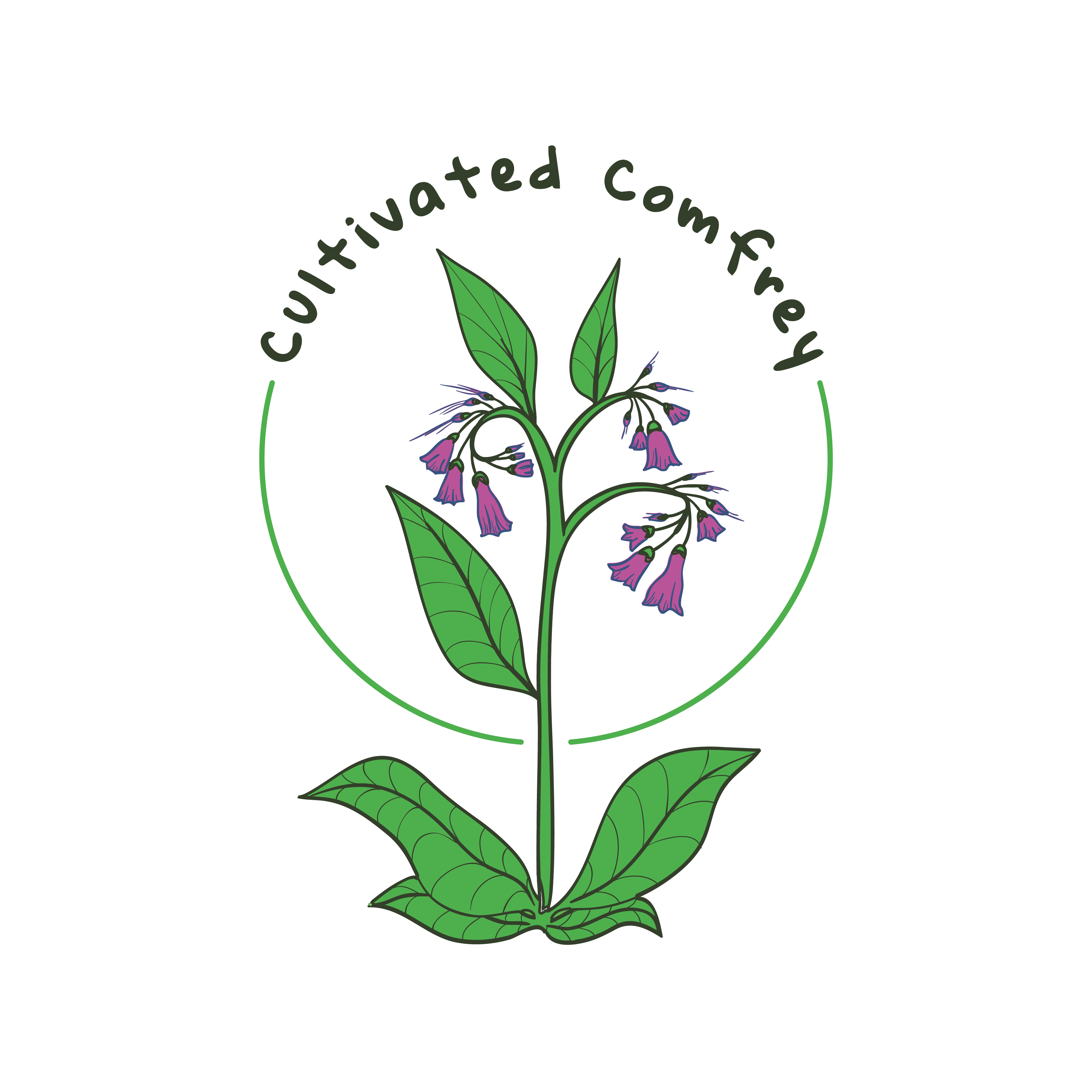
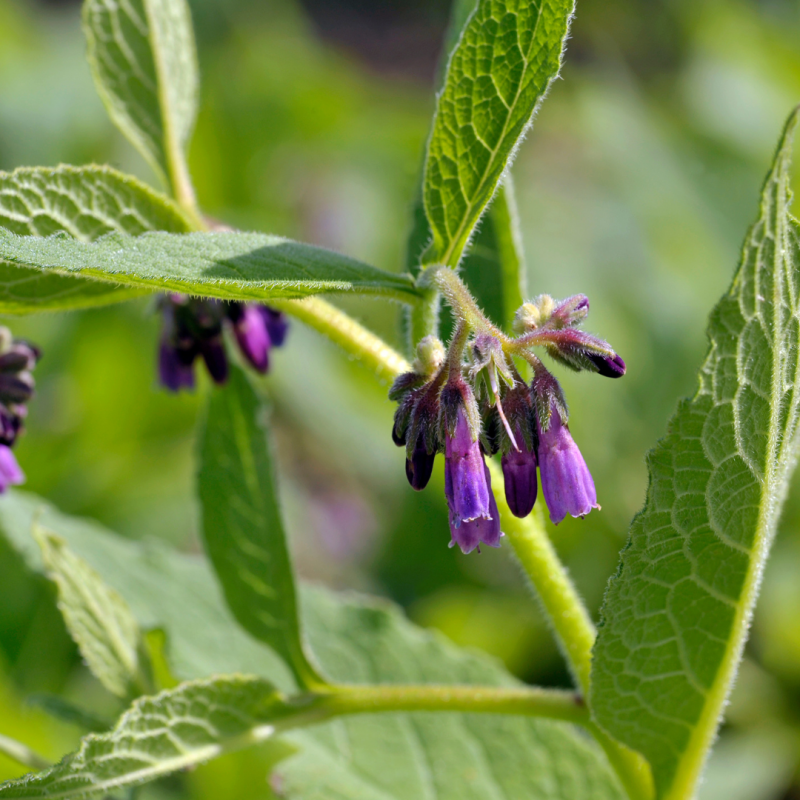
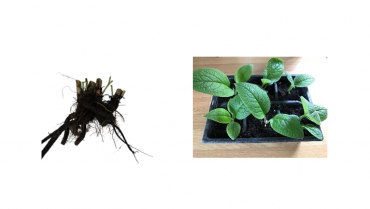
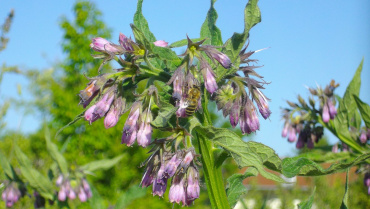
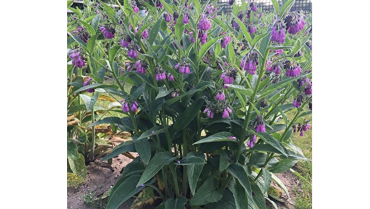
Add Comment